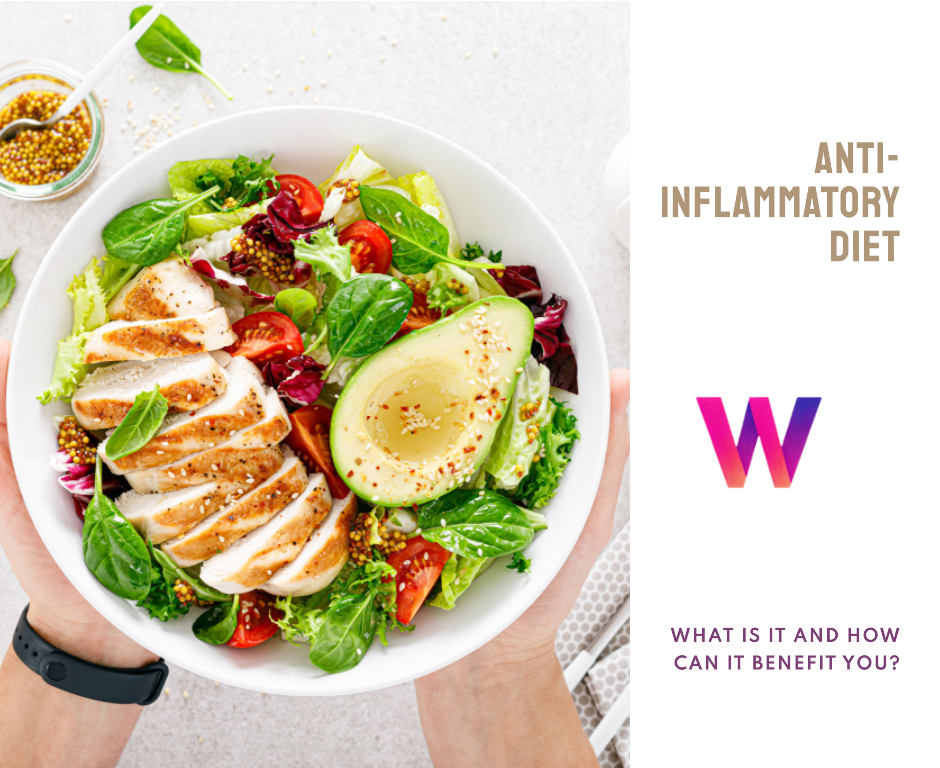Inflammation is a natural process that helps your body heal and fight infections. However, chronic inflammation can cause various health problems, such as arthritis, diabetes, heart disease, and cancer. That’s why many people are interested in following an anti-inflammatory diet, which is a way of eating that aims to reduce inflammation and promote overall wellness.
Table of Contents
What foods are included in an anti-inflammatory diet?
There is no one-size-fits-all anti-inflammatory diet, but generally speaking, it involves eating more plant-based foods, such as fruits, vegetables, nuts, seeds, legumes, and whole grains, and less animal-based foods, such as red meat, dairy, eggs, and processed meats. It also emphasizes healthy fats, such as olive oil, avocado, and fatty fish, and limits refined sugars, salt, and trans fats.
The Organic Skin CO – REFER A FRIEND GIVE $15, GET $15
Some examples of anti-inflammatory foods are:
Berries: These colorful fruits are rich in antioxidants and phytochemicals that can lower inflammation and protect your cells from damage.
Leafy greens: Kale, spinach, broccoli, and other leafy greens are packed with vitamins, minerals, and fiber that can boost your immune system and reduce inflammation.
Nuts and seeds: Almonds, walnuts, flaxseeds, chia seeds, and other nuts and seeds are good sources of omega-3 fatty acids, which can lower inflammation and improve your brain and heart health.
“Also Read: Why Diet’s Don’t Work“
Turmeric: This yellow spice has a compound called curcumin, which has anti-inflammatory and anti-cancer properties. You can add turmeric to your soups, curries, teas, or smoothies for a boost of flavor and health benefits.
Ginger: This root has been used for centuries as a natural remedy for various ailments. It has anti-inflammatory and antioxidant effects that can help with pain relief, digestion, nausea, and colds.
Salmon: This fatty fish is one of the best sources of omega-3 fatty acids, which can reduce inflammation and lower your risk of cardiovascular disease. Aim to eat at least two servings of fatty fish per week.
What are the benefits of an anti-inflammatory diet?
Following an anti-inflammatory diet can have many positive effects on your health. Some of the benefits are:
Improved mood: Eating more plant-based foods can increase your intake of tryptophan, an amino acid that helps produce serotonin, a neurotransmitter that regulates your mood and happiness.
“Also Read: How to Lose Weight Fast and Safely?”
Better weight management: Eating more fiber-rich foods can help you feel fuller for longer and prevent overeating. Eating less processed foods can also lower your calorie intake and reduce your risk of obesity.
Lower blood pressure: Eating less salt and more potassium-rich foods can help lower your blood pressure and prevent hypertension.
Reduced pain: Eating more omega-3 fatty acids can help reduce inflammation and pain in your joints and muscles.
Enhanced immunity: Eating more antioxidants and phytochemicals can help strengthen your immune system and fight off infections and diseases.
How to start an anti-inflammatory diet?
If you want to start an anti-inflammatory diet, here are some tips to help you:
Plan ahead: Make a grocery list of anti-inflammatory foods and stock up your pantry and fridge with them. Plan your meals and snacks ahead of time to avoid temptation and convenience foods.
Experiment with new recipes: Try new ways of preparing anti-inflammatory foods and discover new flavors and combinations. You can find many recipes online or in cookbooks that are easy and delicious.
Make gradual changes: Don’t try to change your diet overnight. Start by making small changes, such as swapping white bread for whole wheat bread or adding more vegetables to your plate. Gradually increase your intake of anti-inflammatory foods and decrease your intake of inflammatory foods.
Enjoy your food: Eating an anti-inflammatory diet doesn’t mean you have to give up all your favorite foods. You can still enjoy occasional treats in moderation as long as you balance them with healthy choices. Remember that eating is not only about nutrition but also about pleasure and satisfaction.
Conclusion
An anti-inflammatory diet is a way of eating that can help prevent or reduce chronic inflammation in your body. By choosing foods that are rich in nutrients and antioxidants while avoiding foods that are processed or high in fat or sugar you can improve your health and well-being.
An anti-inflammatory diet may also provide many benefits such as:
Improvement of symptoms of arthritis , inflammatory bowel disease , lupus , and other autoimmune disorders
Decreased risk of obesity , heart disease , diabetes , depression , cancer , and other diseases
Enhanced brain function , mood , energy , and immunity
If you want to start an anti-inflammatory diet today you can follow these simple steps:
Eat more fruits , vegetables , whole grains , beans , nuts , seeds , fish , olive oil , herbs , and spices
Eat less red meat , processed meat , refined carbs , trans fats , vegetable oils high in omega-6 , alcohol , and tobacco
Drink plenty of water , green tea , or other herbal teas
Enjoy moderate amounts of red wine , dark chocolate , coffee , or other treats occasionally – Consult your doctor before making any major dietary changes especially if you have any medical conditions or allergies.
